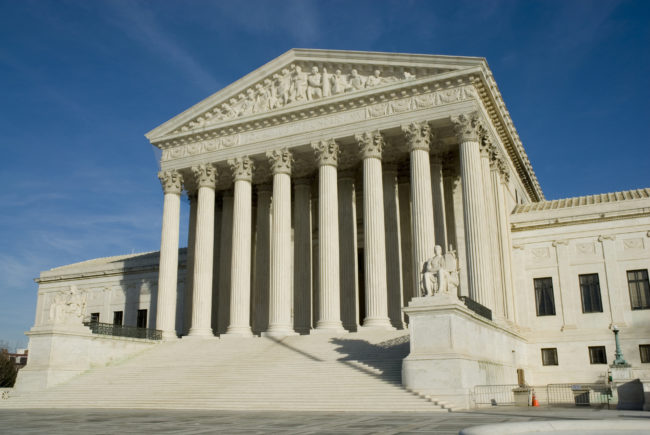On Monday, May 14, 2018, the Supreme Court of the United States struck down a federal statute controlling the states’ ability to regulate sports gambling, destroying Nevada’s monopoly and opening the door for other states to get in on the multi-billion dollar industry. In its majority opinion, the court voted to strike down the Professional and Amateur Sports Protection Act of 1992 (PASPA). Although PAPSA did not make sports gambling itself a federal crime, the Act made it unlawful for states to promote, license, or otherwise authorize wagering on competitive sporting events. Despite the Act’s “grandfather” provisions that provided for the existing forms of sports betting in four states, including Nevada, states were otherwise prohibited from regulating sports betting individually.
The court held, “when a State completely or partially repeals old laws banning sports gambling, it ‘authorizes’ that activity” and therefore violates PAPSA. This prohibition on state authorization was found to violate the anti-commandeering principle by issuing a direct order to states, preventing them from regulating the conduct within their borders. “Just as Congress lacks the power to order a state legislature not to enact a law authorizing sports gambling, it may not order a state legislature to refrain from enacting a law licensing sports gambling.” Finally, the court held that no provision of PAPSA was severable from the provision directly at issue, striking the Act down in its entirety.
The result is twofold: Either Congress can take action to regulate sports gambling directly or it can abstain, leaving each state free to act on its own. Accordingly, many states are prepared to move forward quickly. New Jersey has led the way, with its then-Governor Chris Christie initially challenging the federal ban. Current New Jersey Governor, Phil Murphy, said he will start working to pass a law authorizing sports betting “in the very near future.” It is expected that Delaware, Mississippi, New York, Pennsylvania, and West Virginia will also act quickly to grab a piece of the legal bookmaking action.
Professional sports leagues also reacted to the court’s decision, emphasizing the need for regulation that ensures the integrity of competition. Major League Baseball issued a statement highlighting the decision’s “profound impact”, adding that the “most important priority is protecting the integrity of our games.” The National Football League addressed the decision with a statement, announcing its intention to “call on Congress again, this time to enact a core regulatory framework for legalized sports betting.”
Undoubtedly, the legal sports betting industry is set to take off. However, the future of regulation within the industry is less clear. As suggested by the NFL, Congress could meet this ruling with broad and sweeping regulation. Alternatively, Congress may defer to the states to regulate the multi-billion dollar industry as they see fit. In either case, fans and bettors alike will root for legislatures in their pursuit of a scheme that promotes the safety and integrity of athletic contests.

